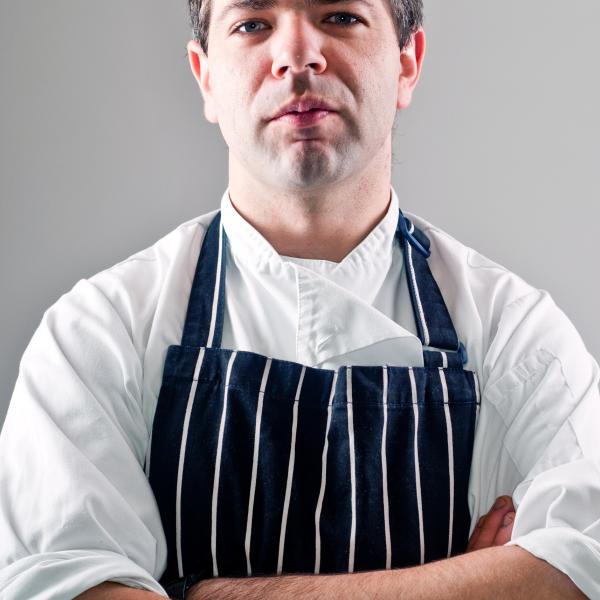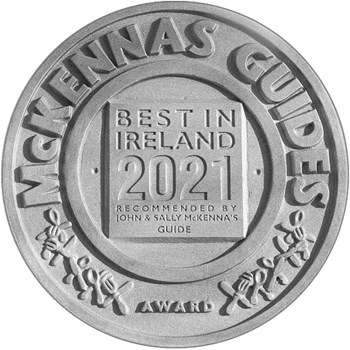
Enda McEvoy isn't a chef. He's a servant. A servant to two masters.
The first master is this big, interesting, quixotic, severe and generous potentate known as the natural world. The second master is this elliptical, shape-shifting magus known as human curiosity. “No man can serve two masters”, it says in the bible, in the Gospel according to Matthew. Matthew, concerned about God and Mammon, misses the point completely.
To serve one master is not service, but slavery. To serve two masters is to recognise humility, but also to respect ingenuity. McEvoy can serve two masters: he is humble, and ingenious.
His cooking has led him through Spain, England, Germany, Australia and Denmark, en route to Aniar, on Dominick Street in Galway, in the humble, curious part of the city. Strange, then, that he “fell into cooking by accident when I was 18 in Germany, in the Black Forest, and fell in love with the trade”. It was an accident waiting to happen, though McEvoy detoured to college to grab a degree in English and Sociology, “which didn't really help me in the kitchen much”, he says. He is surely wrong on that score, for to cook the way McEvoy does requires obliquity – travel, foreignness, language, literature, society – and not instruction. His path has been oblique, and so is his food.
If he had gone at cooking the straight way he would never offer a dish like “monkfish, kale flower, elderberry, cauliflower, mussels”, far less a dish like “beef short ribs, onions, chickweed, sorrel”. His cooking is a new form of culinary notation, a place where cooking is a form of synaesthesia: when you eat “glazed sweetbreads, buttermilk, hen egg, girolles” you don't think only of the tastes and textures and smells of the dish, thrilling though they are. You think also of damp woodland and the light in that woodland on an October afternoon. You think of a chicken's eye. You think of pasture. You think of acidity.
We need a new language to describe this effect, and here it is: this is Relational Cooking. Mr McEvoy want to take your conventional relationship with eating, with restaurants, with ingredients, and he wants to shift that relationship, he wants to move it elsewhere. He wants to implode it. What was once foreign – seaweeds; toasted barley; wood sorrel, sea buckthorn – is now a new family member: the foreign is now your new daughter-in-law, the relationship has been changed. That Sociology degree did come in useful after all.
The humble cook in McEvoy means that Aniar will develop, but not in the standard way in which the cooking trade works. Aniar won't get bigger, it will get deeper. It won't be more famous, it will be more cultured. Enda McEvoy knows that, in order to serve his two masters, he still has a lot to learn. He's ready to learn it. Obliquely.
